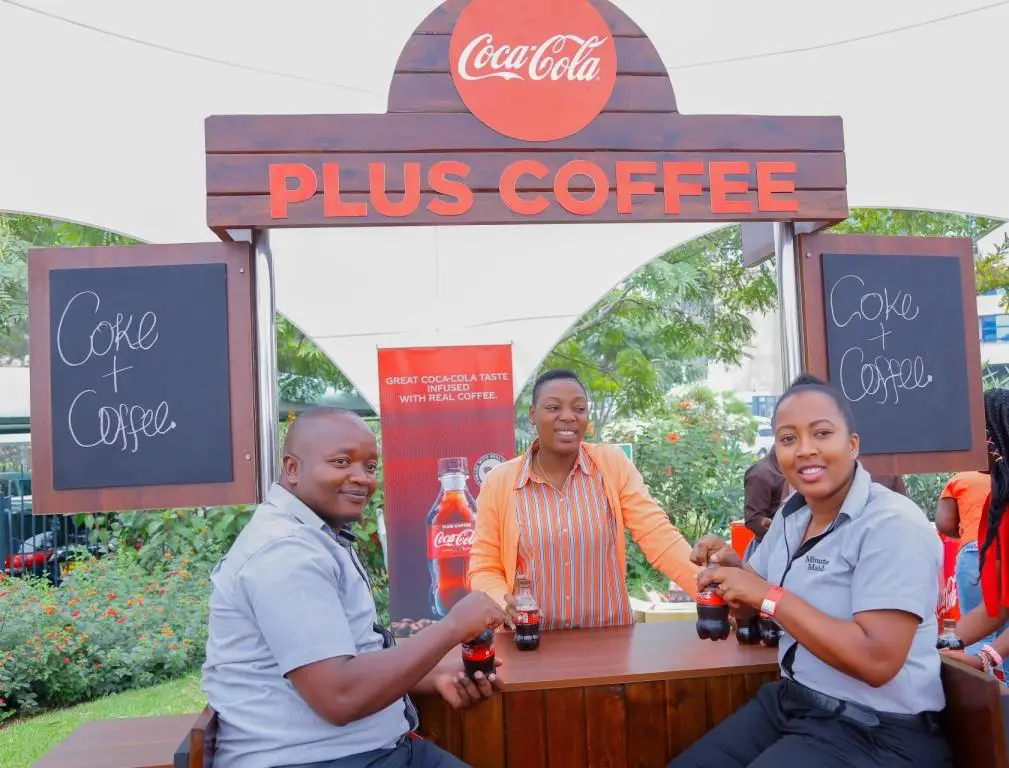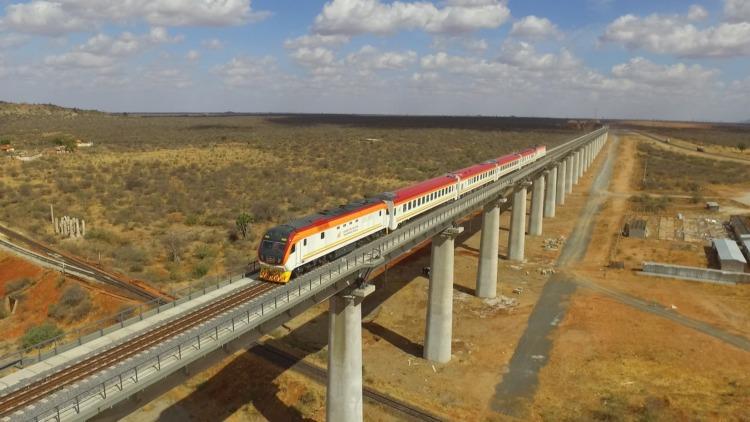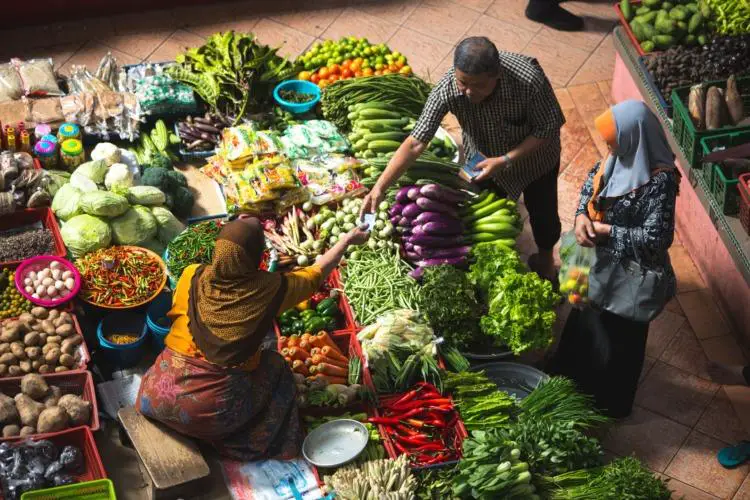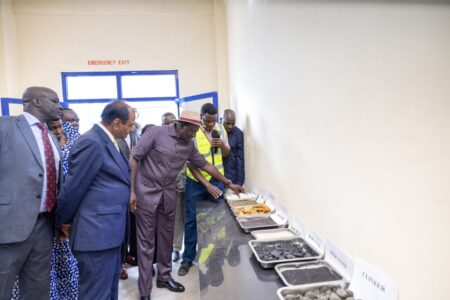The Competition Authority of Kenya has approved the acquisition of a controlling stake in Almasi Beverages Limited by Coca-Cola Sabco (East Africa) Limited, in one of the latest mergers in the country.
The proposed transaction involves acquisition of a 53.95 per cent stake (issued share capital) of Almasi from Centum Investment Company (Plc) by Coca-Cola Beverages Africa Proprietary Limited (CCBA).
Coca-Cola Sabco (East Africa) Limited (CCSEA), the acquiring undertaking is a wholly owned subsidiary of Coca-Cola Beverages Africa Proprietary Limited, a private company established in South Africa and a subsidiary of giant global beverages firm-Coca Cola.
READ ALSO:Coca-Cola to retain majority stake in Africa subsidiary
The acquisition follows the exit of Centum, which on October 3, announced it had completed the sale of its 53.9 per cent shareholding in Almasi Beverages Limited and 27.6 per cent shareholding in Nairobi Bottlers Limited to Coca-Cola Sabco East Africa Limited.
Almasi has three subsidiaries in Kenya namely; Almasi Bottlers (Mt. Kenya Bottlers), Kisii Bottlers and Rift Valley Bottlers.
The subsidiaries prepare, package, distributes and sells Coca-Cola branded non-alcoholic ready-to-drink drink beverages.
“The parties’ combined and relevant turnover for the preceding year was over Sh1 billion ($9.7million). The transaction therefore met the threshold for full merger analysis as provided in the merger threshold guidelines,” CAK led by Director General Wang’ombe Kariuki said in Nairobi.
READ ALSO:Coca-Cola eyes $12 million fruit factory in Uganda
There have been public interest concerns in the transaction which include the extent to which the merger would impact employment opportunities, impact on competitiveness and the ability of national industries to compete in international markets.
Although the proposed transaction is unlikely to negatively affect bottling, Coca-Cola Company will now gain direct control of the bottling process as well as the retail level through dictating how coolers are issued through their bottlers.
The merging parties submitted that approximately 69 per cent of its retailers, whom have been issued with Coca-Cola branded coolers, are SMEs.
SMEs in the context of this transaction are firms which purchase a maximum of ten cases of product per week and have one Coca-Cola-issued cooler in their premises.
These businesses are constrained for space and have limited financial power to acquire coolers from Coca-Cola’s competitors. Retailers lease cooling refrigerators from the bottler and are further required to stock Coca-Cola branded products in these equipment.
To address this concern, the authority has directed that the lower shelf or deck, or not less than 20 per cent of the total storage space, of the coolers leased to SMEs by the merged party’s bottlers be reserved for competitor brands, with the exception of Coca-Cola Company’s three largest global non-alcoholic ready-to-drink competitors.
“Further, a distributor’s assessment of what constitutes a fully-stocked cooler should exclude the lower shelf,” CAK said.
Additionally, the SMEs shall provide access to the reserved portion of the cooler to competitor brands at their discretion.
The merger which is anticipated to happen in 2020 will also impact employment. The two have committed that a maximum of 21 employees of the merged entity will be affected. This is equivalent to 0.061 per cent of the merged entities’ combined workforce of 3,394.
Almasi Beverages has been undergoing rationalization which may lead to redundancies.
Coca Cola however insists that the exercise is necessary in order, to eradicate duplicated functions particularly in the middle and senior management levels.
Addressing employment concerns, the competition watchdog has directed the firms that upon their merger, they shall retain 1,749 employees of the total 1,760 permanent employees for a three year period.
“This condition supersedes any previous employment conditions imposed on the merging parties as a result of any prior merger decisions issued by the authority,” CAK said in a statement.
Coca-Cola Sabco is an investment holding company which holds shares in various bottling companies (Nairobi Bottlers Limited, Crown Beverages Limited and Equator Bottlers Limited).
Its parent company Coca-Cola Beverages Africa allocates individual bottlers the territorial markets within which to supply their products.
Coca Cola bottlers do not compete among themselves in terms of production units, but compete against entities manufacturing substitutable products.
However, the bottlers compete among themselves in the allocated territories with the aim of maximizing their revenues.
Coca Cola and Almasi are involved in the production and distribution of branded non-alcoholic ready-to-drink beverages that are brands of Coca-Cola Company.
In Kenya, the main players in this sector are Coca-Cola which dominates with a 70 per cent market share. It is followed by Kevian Kenya which enjoys a much smaller market share of 4.76 per cent.
Others are Excel Chemicals (2.29%); Del Monte (1.42%), Highlands (1.59%) and Suntory (0.48%). Other players including imported brands have a combined markets share of 19.46 per cent.
“Post-merger, this market structure and concentration is unlikely to change since the merging entities both bottle products for the Coca-Cola Company and intend to continue with this line of business for the foreseeable future,” the regulator notes.
READ ALSO:Shocking counterfeit headaches crippling Kenya’s manufacturing sector
Non-alcoholic ready-to-drink Coca-Cola products largely consist of glass and plastic bottled sodas, juices, fruit, and water.
READ:Coca-Cola, PepsiCo and Nestlé worst plastic polluters worldwide
The non-alcoholic ready-to-drink market is made up of carbonated soft drinks, carbonated still energy and sports drinks, carbonated and still fruit juice, flavored milk, iced teas, iced coffee and still bottled water, among others.
The parties have indicated that post-merger, Coca-Cola Company and its bottlers will maintain the existing operational model where each bottler and distributors is allocated a region to operate from.
Competition concerns remain by the fact that, post merger, Coastal Bottlers Limited, a major player in the country’s coastal region, will exist as the only independent bottler.
Such an eventuality would increase Coastal Bottlers Limited’s cost of production and its products, making them less attractive to consumers.
“It is conceivable that the CCBA may decide to foreclose Coastal Bottlers Limited’s customer access by deciding to commence supplying product in territories that are presently assigned to the bottler,” the competition authority has noted.
“It is also conceivable that The Coca-Cola Company may enforce input foreclosure by giving its merged bottlers preferential treatment, over Coastal Bottlers Limited, when procuring concentrates,” CAK says.
In its ruling, the authority has asked the merged entity to honour existing agreement with Coastal Bottlers Limited.
Coca-Cola Beverages Africa shall within nine months of completion of the transaction amend the agreements between the merged entity and its distributors to permit distributors to distribute other non-alcoholic ready-to-drink.
Downstream, the subsidiaries of the merging parties are expected to enter into supply agreements with distributors who channel the Coca-Cola products to retailers in specified locations for sale to consumers.
However, the merged entity will retain the ability to set maximum recommended resale prices for its distributors.
READ:Here are Coca-Cola’s new beverages
According to CAK, these interventions will allow new players to gain access to the local non-alcoholic ready-to-drink sector market, exerting positive competitive pressure on the incumbents.
“From the foregoing, the authority approved the acquisition of a controlling stake in Almasi Beverages Limited by Coca-Cola Sabco (East Africa) Limited,” the regulator said.
Coca-Cola Beverages Africa will continue to operate the current bottling plants of the merged entity in Nairobi and other major towns in the country which include Nyeri, Eldoret, Molo and Kisumu, for at least three years after completion of the proposed transaction.
The parties have indicated that they intend to continue operating and investing in the bottling plants “in the foreseeable future.”











